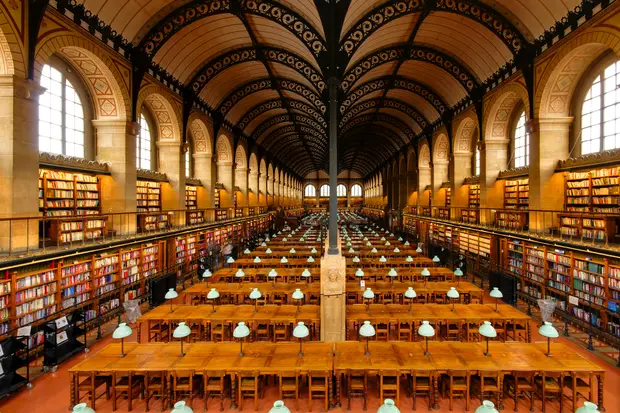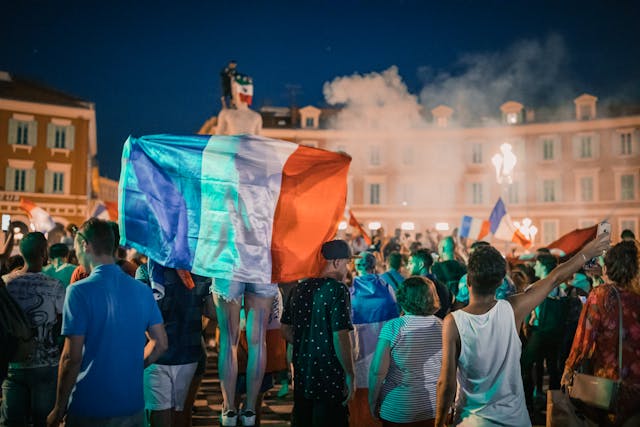Discover France through these amazing curiosities you probably didn’t know existed. From unusual laws to astonishing records, France is full of surprises…
1. The first woman to win a Nobel Prize was French
In 1903, the first woman to ever win a Nobel Prize was French! Marie Curie was awarded the Nobel Prize in Physics for her work on radioactivity.

2. The French village where it’s forbidden to die
Several villages in France have banned their inhabitants from dying!
The mayors have issued a municipal decree, a measure designed to provoke more of a reaction than anything else, of course. Some are denouncing the overcrowding of their cemeteries, others medical deserts.
This is particularly the case in the French villages of La Gresle, Cugnaux and Le Lavandou.
3. The guillotine was last used in France in 1977
Since the French Revolution in 1789, the guillotine has been the weapon of choice for executing those condemned to death in France. The brutality of this machine has become an iconic symbol.
Surprisingly, it was used right up until 1977! After the abolition of the death penalty in 1981, guillotines were put aside for good.

4. There’s a French village called “Y”
The award for the village with the shortest name goes to “Y”! How do you pronounce a name like that? Quite simply, [ee].
This village in northern France has around 90 inhabitants, known as Yssois or Ypsiloniens.
5. France’s longest border is not in Europe
France is surrounded by three seas and an ocean, which doesn’t leave much room for land borders, does it? So, where is its longest border?
Well, it’s in Brazil! Yes, French Guiana and Brazil share a 730 km border.
6. France’s TGV (Train à Grande Vitesse, “high-speed train”) holds the record for the fastest wheeled train in the world
In 2007, the French TGV reached a speed of 574.8 km/h (357.2 mph), a world record for any high-speed train. Fasten your seatbelts!

7. Until 2013, women were forbidden by law to wear pants
Here are some key dates on women’s rights in France, what’s wrong with this picture?
- 1944: right to vote
- 1975: law authorizing abortion (voluntary termination of pregnancy)
- 2013: abolition of the law prohibiting women from wearing pants
That’s right, you read that correctly, the law prohibited women from wearing pants until 10 years ago! Well, obviously this law was no longer enforced, but it has finally been withdrawn…
8. The French army was the first to use camouflage
It was in 1915, during the First World War, when France introduced individual camouflage clothing for its soldiers.
The principle was adopted by all and is still used today.

9. The oldest person to ever live is French
Jeanne Louise Calment was born in France in 1875. She survived two world wars and even saw the advent of the Internet, before dying in 1997 in her hometown, 122 years, 5 months and 14 days later.
This set a world record for men and women combined.
10. There are several hundred French cheeses
France loves cheese. That’s nothing new. But has it become an obsession? Or national pride? Because there are over 1,000 varieties of French cheeses.
You can eat more than one different cheese a day for a year and never have the same one!
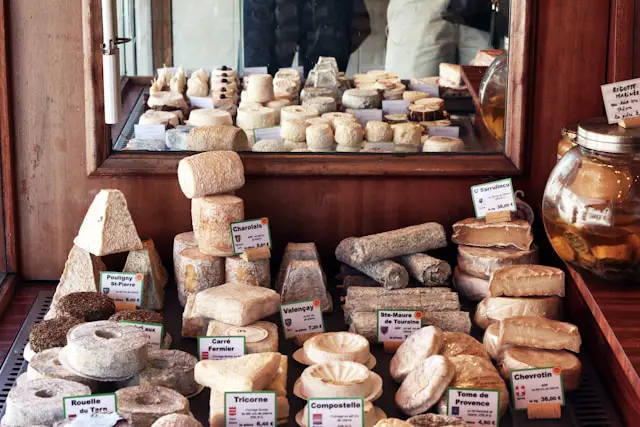
11. There’s a law against smoking and alcoholism
In 1991, the Loi Évin was passed to protect the French. So, what does it involve?
This law prohibits smoking in public places, but above all it bans tobacco advertising and has led to price increases!
As far as alcohol is concerned, the Évin law also regulates advertising, requiring each advert to warn of the health risks associated with alcohol abuse.
12. France is nicknamed L’Hexagone (the Hexagon)
That’s right, France is nicknamed L’Hexagone. A name that’s easy to remember, just look at its shape: a hexagon!
It’s a rather balanced shape, in fact, with 3 sea sides and 3 land sides.

13. In France, it is possible to marry a dead person
In France, it is possible under certain circumstances to marry a deceased partner. One of the conditions is that the couple had intended to marry before the sudden death of one of them.
However, such a union requires the prior authorization of the President of the Republic.
14. Placing a baguette upside down brings bad luck
The French are proud of their food. And the baguette? They’re attached to it. So turning it upside down is in very bad taste. Especially as it causes bad luck!
It’s a superstition that dates back to the Middle Ages, when the executioners who executed the condemned during market hours had the bakers set aside their bread in a simple way: upside down. Since then, it has become a sign of death.
15. 16 million baguettes made every day
Speaking of baguettes, no fewer than 16 million of them are made every day. Yes, you read that right, every day! That’s over 185 baguettes per second!
Not bad for a population of around 70 million.
With a production rate like that, it’s clear that the baguette isn’t likely to disappear any time soon; it’s firmly rooted in French culture.
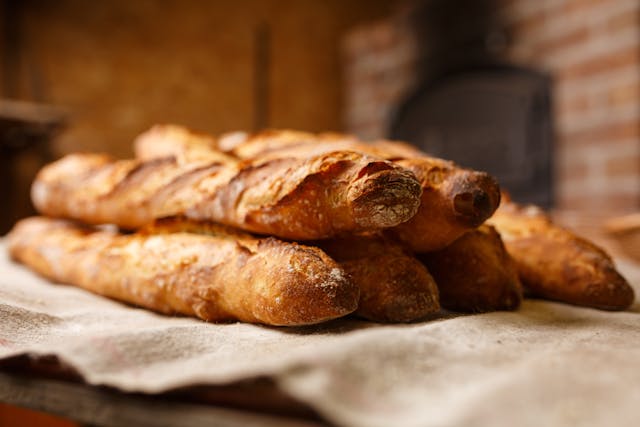
16. The baguette as part of UNESCO’s intangible cultural heritage
Want to know more about baguettes? Like I said, the French love them.
So in 2022, the culture of the baguette de pain was listed as an intangible cultural heritage. It’s not only a culinary icon, but also a cultural and historical symbol of France.
There’s no stopping it, the baguette is sacred!
17. French has been the official language of England for over 300 years
In France we speak French, in England we speak English. Logical, don’t you think?
Well, it’s not! For 300 years, French was the imposed language in England, at the request of William the Conqueror, Duke of Normandy, in 1066.
18. France is the country with the most time zones
- United States: approx. 9.6 million km² (3.7 million sq mi) and 6 time zones
- France: approx. 638,000 km² (246,000 sq mi) and 13 time zones
That’s right! France has 13 time zones. Hard to believe, isn’t it? Yet it’s thanks to its overseas territories spread across the globe that France has so many different time zones.
Here’s the detailed list:
- UTC+01:00 : Metropolitan France and Corsica
- UTC-10:00 : Society Islands, Tuamotu Islands and Austral Islands (French Polynesia)
- UTC-09:30 : Marquesas Islands (French Polynesia)
- UTC-09:00 : Gambier Islands (French Polynesia)
- UTC-08:00 : Clipperton Island
- UTC-04:00 : Guadeloupe, Martinique, Saint-Barthélemy, Saint-Martin
- UTC-03:00 : French Guiana and Saint-Pierre-et-Miquelon
- UTC+03:00 : Mayotte
- UTC+04:00 : La Réunion, Îles Éparses (Scattered Islands in the Indian Ocean) and Crozet Islands
- UTC+05:00 : Saint-Paul and Amsterdam Islands and Kerguelen Islands
- UTC+10:00 : Adélie Land
- UTC+11:00 : New Caledonia
- UTC+12:00 : Territory of the Wallis and Futuna Islands
19. France has more roundabouts than any other country in the world
France is the world champion when it comes to roundabouts. It leads the way with around 50,000 roundabouts, followed by Spain and the UK.
The United States, although larger, has only around 10,000 of them.
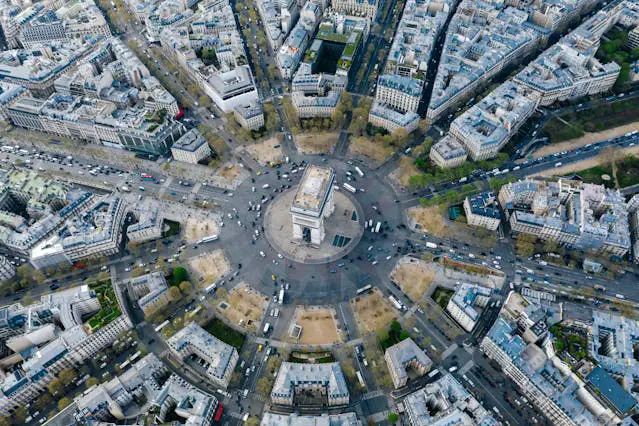
20. France is the largest country in the European Union
The European Union is made up of 27 countries. Among these 27 countries, France is the largest, followed by Spain and Sweden.
21. The French “kiss” each other hello, but the number of kisses varies from region to region
The French have a very particular way of greeting each other: they kiss each other on the cheeks. This is called “la bise”. But be warned, things get complicated.
The number of kisses is not the same everywhere in France. From one region to another, the French give 1, 2, 3, 4 or even 5 kisses. And do we start with the right cheek or the left? Once again, the rules differ from place to place.
So, for example, the majority of France prefers to give 2 kisses, at least that’s equitable. In the Finistère region, and only in the Finistère region, you’ll only get one little peck! In the south-east of France, 3 kisses are the rule; anxious people may not like this odd number… And finally, the bravest people, those in western France, take the time to give 4 kisses.
22. The French get a fish glued to their back on April Fool’s Day
April Fool’s Day is the day for pranks and practical jokes between friends and family; it’s nothing new, everyone’s been a victim or even instigator!
One of the best-known pranks in France involves hanging a paper fish from someone’s back. Whenever a prank of any kind is discovered, the perpetrator can cry out “Poisson d’Avril !” (April Fool!)

23. The Eiffel Tower grows in summer
Can you believe it?
In fact, there’s a simple explanation: in summer, the sun beats down on the iron structure and the heat causes the materials to react, and ta-da! The Eiffel Tower gains a few millimeters.
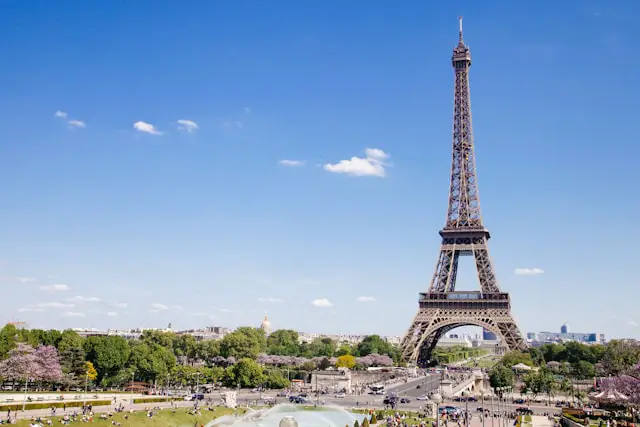
24. The word salut means both “hi” and “bye”
Yes, it’s often said that French is a very complicated language, but there are some well-hidden simplicities.
For example, a single word is enough to say both “hi” and “bye”, although, admittedly, this is more appropriate between friends and family, and should be avoided in formal settings, like with your boss.
And it may be a little confusing for some, but I assure you the French are not at all confused by this usage.
25. The Louvre is the world’s largest art museum
Of all the art museums in the world, the Louvre in Paris is the biggest and also the one that attracts the most visitors; millions every year!
Over 35,000 works of art are displayed in its 17-acres galleries. With such a vast collection, you’re bound to find artworks of every kind and from every era.
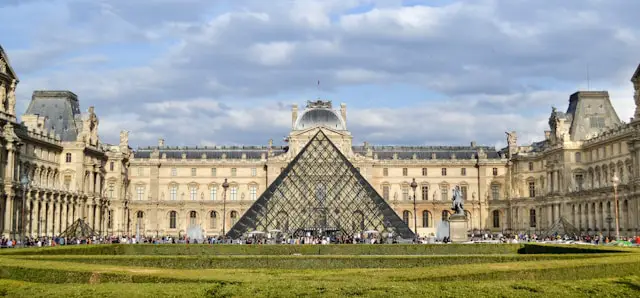
26. The Tour de France is the world’s biggest cycling race
Created in 1903, the Tour de France is a true cycling institution. It’s also the most prestigious competition in the world! Along with the Giro d’Italia (Tour of Italy) and the Vuelta a España (Tour of Spain), it’s known as the three Grand Tours.
Covering hundreds of miles across France, this annual event attracts the attention of millions of cycling enthusiasts. And yes, it’s one of the most watched sporting competitions.
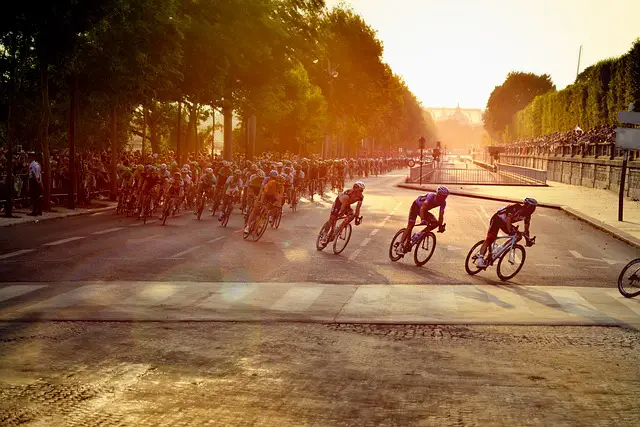
27. France has the world’s second-largest exclusive economic zone
France ranks second in terms of its Exclusive Economic Zone (EEZ).
So, to put it simply, an EEZ is the maritime zone extending up to 200 nautical miles (around 230 miles) off a country’s coast. Within this zone, the country has special rights over the exploitation of natural resources.
And so, with all its overseas territories spread across the globe, France is the second country in the world with the largest EEZ, with over 10,000,000 km² (3,800,000 sq mi), just behind the United States.
28. The Cannes Film Festival is one of the most prestigious film festivals in the world.
The Cannes Film Festival is a glamorous rendezvous of world cinema.
Every year, for 12 days, it attracts the biggest stars, directors and producers in the international film industry.
It’s a not-to-be-missed event for discovering the most eagerly-awaited films, arousing the enthusiasm of professionals and audiences alike.
29. Lyon, world capital of gastronomy
Ranked as France’s third largest city, Lyon is proudly called the “world capital of gastronomy”.
This distinction is largely attributed to its exceptional culinary wealth. Lyon is famous for its bouchons traditionnels, cozy, welcoming little restaurants where you can enjoy authentic, hearty dishes.
Not to mention the many Michelin-starred chefs, including Paul Bocuse, an emblematic figure and true legend of French cuisine.
30. The Fête de la Musique (Music Day) is French
Music Day is an event not to be missed.
Every year on June 21, the streets come alive with free concerts and a variety of musical performances, bringing together all music lovers.
This initiative encourages the dissemination of music and strengthens links between communities through cultural sharing.
This tradition, which originated in France in 1982, is now celebrated all over the world.
I aim to share my tips and recommendations for the beautiful country of France. My goal is to help you plan your next adventure, whether it’s a weekend getaway or a once-in-a-lifetime trip. From finding the best hotels and restaurants, to discovering unique activities and sights, I’ve got you covered!



